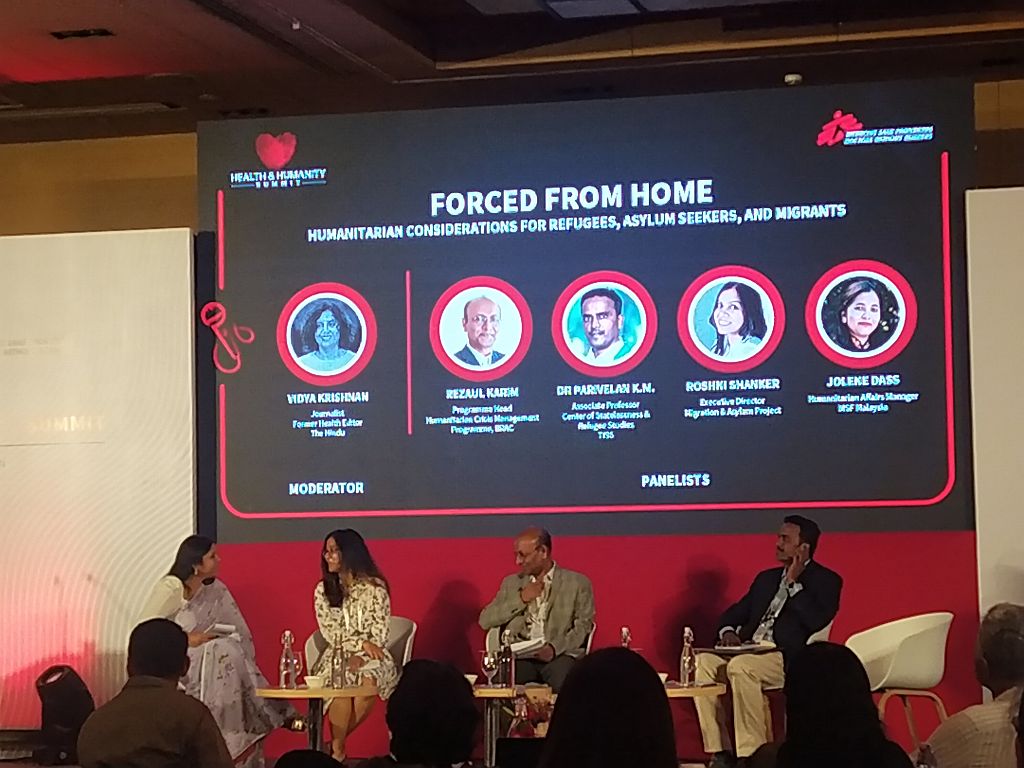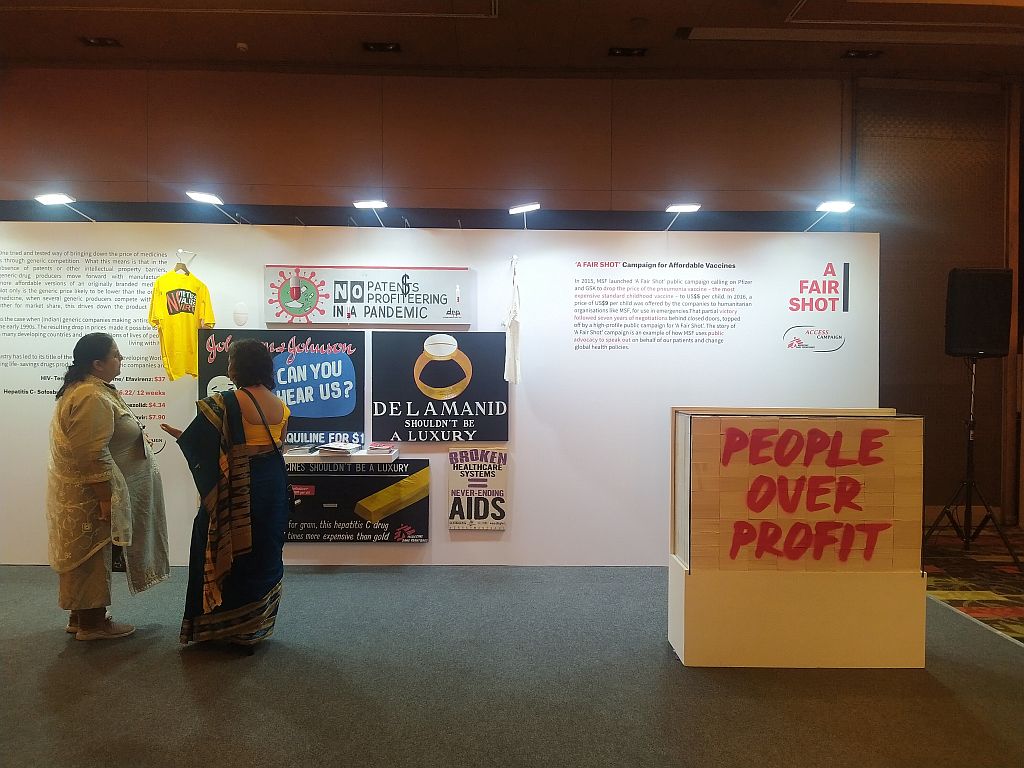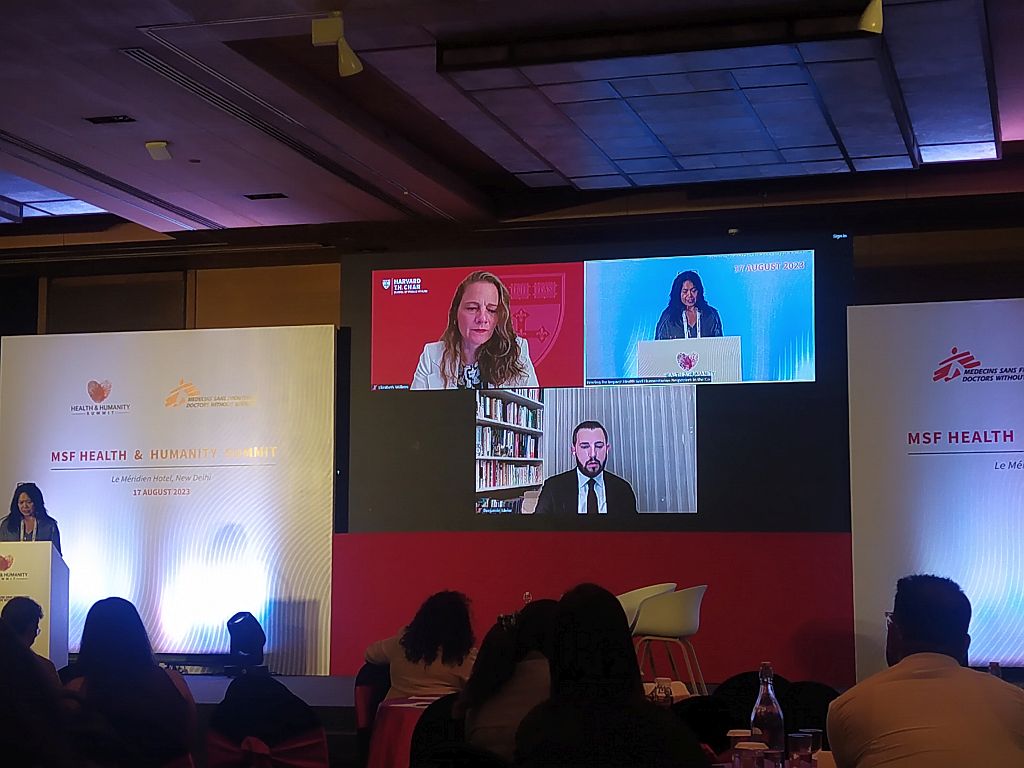Health and humanity summit organized by MSF
On August 17, 2023, Médecins Sans Frontières (MSF, Doctors Without Borders) organized a one-day summit on Health & Humanity at Le Meridien Hotel in New Delhi, India. This summit brought together various stakeholders, including civil society organizations, educational institutions, journalists, interns, and medical students, to discuss the challenges and developments in the field of health.

The event was attended by more than 150 people from different parts of the world, making it a diverse gathering. Dr. Farhat Mantoo, the executive director of MSF South Asia, delivered the opening remarks, emphasizing how health has always been intertwined with humanitarian challenges and socio-economic developments in our society. This set the tone for the discussions that followed throughout the day.
One of the highlights of the summit was the keynote address by veteran journalist P. Sainath on the topic “Inequality is bad for your health.” Sainath shed light on various incidents during the COVID-19 pandemic that exposed the devastating impact of inequality on vulnerable populations, such as migrants, refugees, and girls living in tribal areas. He emphasized the urgent need for equity in access to treatment and healthcare services.
Before the panel sessions commenced, the summit’s exhibition was opened for attendees to explore. The exhibition featured transformational ideas from seven different organizations, highlighting the significant impact of India as the “pharmacy of the world” and the gaps that still need to be addressed in that capacity.
The exhibition specifically showcased how immigration across the world has affected our health response. It shed light on the major gaps in how we treat our citizens compared to refugees, asylum seekers, and illegal immigrants. This aspect of the exhibition aimed to bring attention to the disparities and challenges faced by different populations in accessing healthcare services.
The exhibition consisted of various forms of art, including paintings and photographs, which provided a visual representation of immigration and its impact on public health. These artistic displays sought to evoke emotions and offer insightful perspectives on the health issues faced by immigrant populations.
By including paintings and photos, the exhibition created a dynamic and engaging environment, encouraging attendees to reflect on the realities of immigration and its intersection with healthcare. The artwork served as a powerful medium to convey the message of the summit and prompt discussions on how these issues can be addressed.

Overall, the exhibition before the panel sessions offered a visually impactful experience that complemented the discussions that followed. It effectively highlighted the importance of addressing the gaps in healthcare access for different populations, emphasizing the need for equitable and inclusive healthcare policies and services.
By showcasing the transformative ideas and presenting thought-provoking artwork, the exhibition fostered a deeper understanding of the challenges faced in the healthcare sector and instilled a sense of urgency among attendees to work towards bridging those gaps.
The summit featured four panel discussions that covered a range of topics. The first panel was moderated by Vidya Krishnan, Journalist, Former Health-Editor, The Hindu and included respected professionals and ambassadors like Roshni Shanker, Executive Director, Migration & Asylum Project, Rezaul Karim, Programme Head, Humanitarian Crisis Management Programme, BRAC, Jolene Anthony Dass, Humanitarian Affairs Manager, MSF Malaysia, Dr Parivelan K.M., Associate Professor, Center of Statelessness and Refugee Studies, School of Law, Rights and Constitutional Governance, TISS. The panel discussionfocused on the humanitarian considerations for refugees, asylum seekers, and migrants. Experts delved into the challenges faced by these populations in accessing healthcare and the need for effective strategies to address their specific needs. The learning from Cox’s Bazar, Rohingya displacement and refugee statelessness was key to the discussion.
The second panel centered around how the COVID-19 pandemic has shaped justice equity, particularly in terms of access to treatment and healthcare. This discussion highlighted the disparities that exist in healthcare systems and the urgent need for more inclusive approaches. Moderated by Leena Menghaney, Regional Head, MSF Access Campaign, the panel included K.M. Gopakumar, Senior Researcher and Legal Advisor at Third World Network, Dr Brinelle D’Souza, National Programme Director, TISS, Giten Khwairakpam, Community and Policy Program Manager, TREAT Asia programme, amfAR. The stories of COVIDs devastating second wave in India were focal points during this discussion and how the responses to the crisis fell just short of adequate and were specifically turned into a learning curve that could prepare us to change our archaic policies and make us rise to challenges at hand.
The third panel themed as Bracing for Impact, explored health and humanitarian responses in the context of security threats. Experts including Elizabeth Willetts, Planetary Health Policy Director, Harvard T.H. Chan School of Public Health, Benjamin Mason Meier, Professor of Global Health Policy, University of North Carolina at Chapel Hill, Senior Scholar, O’Neill Institute for National & Global Health Law, Nishant Sirohi, Health & Human Rights Fellow at the Geneva Health Files discussed the challenges faced in delivering healthcare services in conflict zones and areas affected by violence, emphasizing the importance of protecting healthcare facilities and workers during times of crisis. Moderated by Dr Maria Guevara, International Medical Secretary, MSF who raised statements of impact from each experts previous work and posed essential questions around slow burn impact on health challenges through climate change, health policies of global south and global north as well as how learning from this part of the world can actually resolve issues for the western society were also discussed. The barriers between exchange of information and learning were also a major part of this panel’s conversation.

Lastly, the fourth panel comprising of moderator Ms. Divya Pushkarna, Disinformation Advisor from MSF and members of the panel Tina Purnat, Health Information and Infodemic Manager, WHO, Osama Manzar, Executive Director, Digital Empowerment Foundation, Shalini Joshi, Director, Meedan & Co-founder Khabar Lahariya discussed the building of community resilience to combat misinformation and disinformation during emergencies. This panel focused on the vital role of accurate information in public health emergencies and strategies to ensure communities are well-informed.
The closing remarks were given by Ambassador Vijay Nambiar, a retired Indian diplomat who previously served as chief de cabinet under UN Secretary-General Ban Ki Moon. Nambiar highlighted the key takeaways from the summit and emphasized the importance of collective action to meet public health targets in both the global south and global north.
Overall, the summit provided a platform for insightful discussions and shed light on the challenges and gaps in the field of global health. It emphasized the importance of addressing inequalities and ensuring equitable access to healthcare services for all. The event served as a call to action, urging participants and stakeholders to work together to create a healthier and more inclusive world.
(Report prepared by Dr. Preeti Chauhan, Head-National Policy, Pallium India, who represented Pallium India at the event.)






